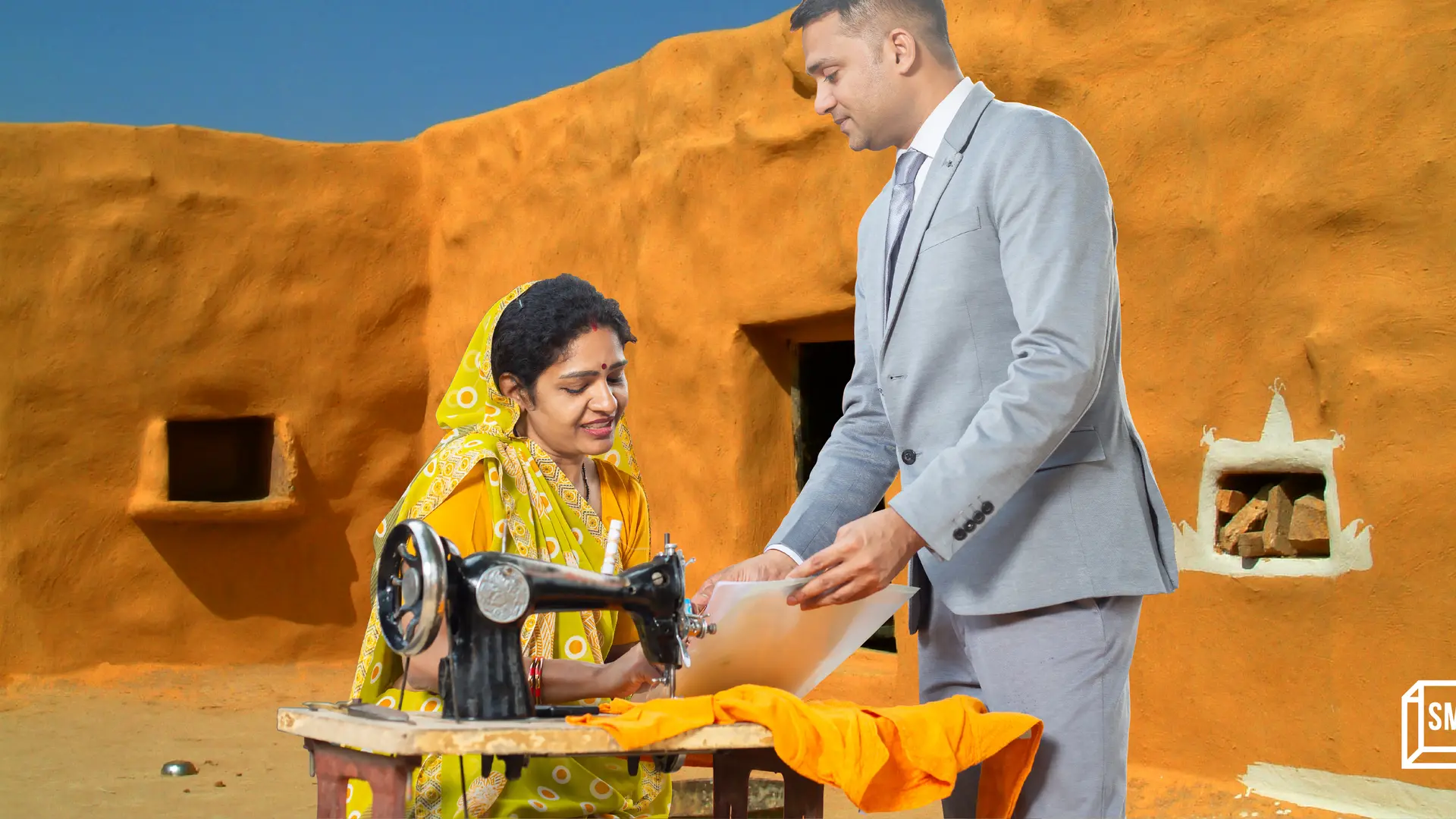This scientific assistant gave up a cushy govt job to start an organic hair colour brand, now worth Rs 60 Cr
Shyam S Arya and wife Dr Harinder Arya started Indus Valley, a hair colour brand, that has garnered customers not just in India but across the globe, competing with the likes of L'Oréal and Revlon.
In 1986, in his early 20s, Shyam S Arya was working with the Council of Scientific and Industrial Research (CSIR) as a Senior Scientific Assistant. So deeply dissatisfied was he in his role that he quit his cushy government job after seven years, and took to the rather unpredictable and adventurous path of entrepreneurship.
In an interview with SMBStory, Shyam recalls,
“I had a biotechnology background and R&D was my area of interest. I was doing my PhD when I came across Faridabad-based Food Drug Research Analytical Labs, set up by Dr BD Narang. He was selling it off, so my wife Dr Harinder Arya and I bought the same to develop formulas and technologies for various industries.”
Shyam and Harinder invested Rs 10 lakh to take over the lab and buy machines for R&D purposes way back in 1994, and thus began their venture - FDRA Labs (India) Pvt Ltd.
Targeting the cosmetic industry
Being an ambitious scientist and entrepreneur, Shyam had big dreams of working with top-notch companies and industries, and develop formulations for them. They planned to develop technology for types of proteins like spartan, lactose, etc. However, he soon realised that small-scale industries were the ones that were approaching his lab.
“We were one of the first labs in Faridabad city, and local entrepreneurs who were into the cosmetic industry approached us in our early days. We did not want to turn them down, so on the one hand, we developed technologies for them, and on the other, we worked hard to onboard bigger names as our clientele. We also realised that there was more business potential if we catered to the small industries,” says Shyam.
Being in Faridabad, a city famous for its henna industry, he worked with many manufacturers of the same, while also developing formulas for thinners, printing press chemicals etc.
But, like they say, small steps in the right direction can turn out to be the biggest step of your life, and for Shyam, these small beginnings led to bigger opportunities in 2002, when he began contract manufacturing for hair colour and hybrid henna. Not just for Indian players but also companies across the globe. He soon christened this venture of his Indus Cosmeceuticals.
“Except for Godrej, we were developing technologies for almost every Indian brand that was into henna and hair colouring,” Shyam claims.
Shyam says he developed 100 percent natural hair colour for Aubrey Organics USA (with the brand name 'Color Me Natural'), and developed natural henna hair colour for America International Industries (with the brand name 'Hennalucent").
Besides hair colour and henna, Shyam also started developing other skin care and hair care products. The business was on the rise until 2008, and then the infamous Great Recession hit, knocking it all down.
“One of our biggest clients in the US committed suicide, the others from Japan and Europe withdrew contracts. It was a huge loss for us,” he recalls. Shyam continued to pursue local businesses, but those weren't enough for survival. The hard times lasted two years.

Indus Valley product range
But learning from the experience, Shyam decided to bounce back, and start a hair colour brand. He says experiencing the setback in 2008 gave him the strength and confidence to build his own brand, which he feels gives more security as well.
He launched Indus Valley in 2010 and has not looked back since.
The launch away from home
Starting small in the Netherlands, Shyam launched Indus Valley with two hair colour products named Indus Valley Gel Colour and Indus Valley Botanical Colour. He planned on improvising the same going ahead.
He claims his brand’s popularity outside the country was due to the hair colours being free from all commonly used chemicals like ammonia, hydrogen peroxide, paraphenylenediamine, barium and other heavy metals that cause irreparable harm to hair strands.
The brand gained much recognition, and Shyam was able to launch in the European market in 2012, also starting export to other EU nations. In a strange irony, in 2015, Indus Valley made its way home to India, competing with one of the biggest global brands in the sector - L'Oréal.
“L'Oréal is a dominant player in every market for hair colour, and we were hesitant to launch in India due to the fact that we are priced higher than L'Oréal and in India, consumers make a lot of comparisons,” says Shyam.
However, when he did launch in India, Shyam started out in Hyderabad through a dermatologist. He says he was sure that was the right medium as it would enable customers to understand the USP of the product coming from a professional.
In April 2020, Shyam merged Indus Cosmeceuticals (manufacturing) and Indus Cosmeceuticals Pvt Ltd (trading). He claims the company rakes in an annual turnover of Rs 60 crore, and has established itself in more than 25 countries.
At present, the company is mostly running its own brand and doing contract manufacturing only for one company in Germany.
Challenges and competition
The Indian hair colour market was valued at $ 477 million in FY 2020, and is forecast to grow at a CAGR of over 17 percent until FY 2026 due to various growth factors such as evolving lifestyles, growing hair-highlight trend, and also increasing number of hair related issues. Shyam claims that Indus Valley holds five percent of the market share in India, competing with the likes of L'Oréal and Revlon.
“Most chemical hair colour has side effects like damage to hair, allergies, and toxic elements exposure. Indus Valley provides an alternative to hair colours that cause side effects by using pure organic ingredients,” Shyam says.
Indus Valley manufactures its products in Shoghi in Shimla District, Himachal Pradesh, while the couple’s first venture in Faridabad - FDRA Labs remains its R&D centre. Most of the raw materials like argan oil, rhubarb, logwood, and chamomile are imported, whereas the core ingredient henna is procured solely from within India.
Recently, Indus Valley also ventured into the D2C business model. Shyam says 60 percent of its online sales comes from metros like Bengaluru, Delhi, Mumbai, and Pune. Indus Valley is also listed on 1mg, Amazon, and Flipkart.
Future prospects
With extensive R&D, the company plans to promote the use of damage-free, organic alternatives to cosmetics, where possible.
Indus Valley is also planning to launch its professional range and has recently tied up with unisex salon Looks, but due to the lockdown, the deal is on hold.
Also on the pipeline is a 100 percent organic hair colour, and spa with essential oils package. Shyam claims this new product will help in the prevention of premature greying and maintenance of healthy hair.
Edited by Anju Narayanan









